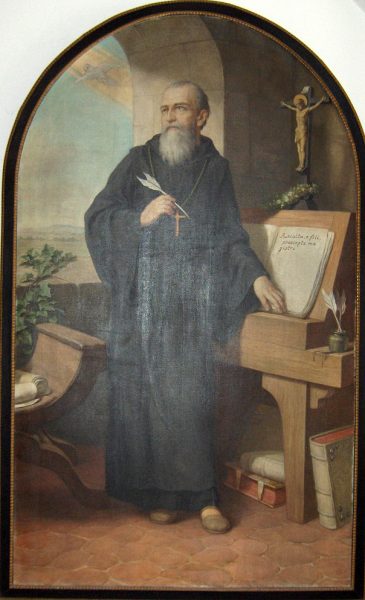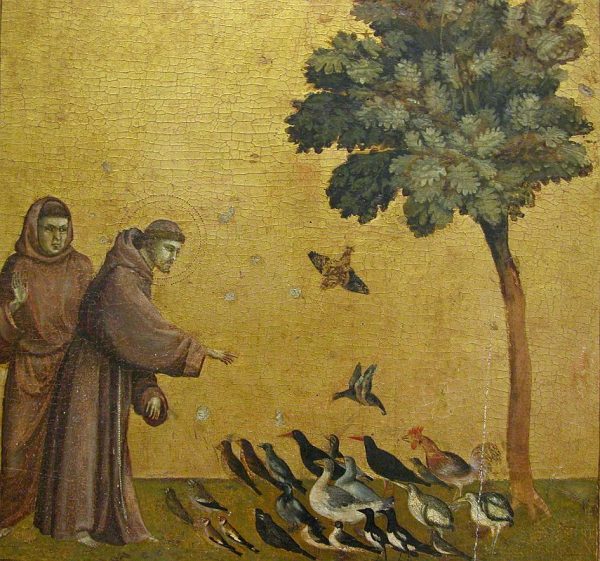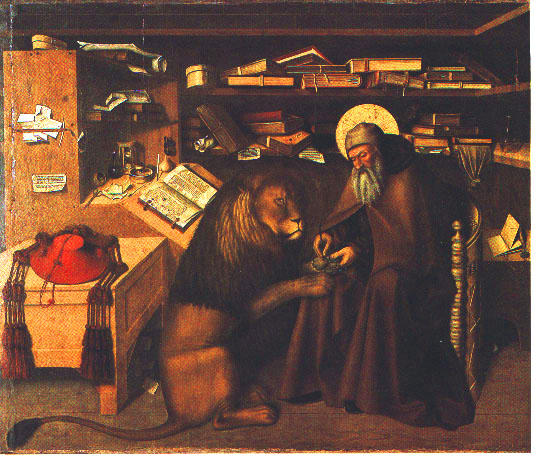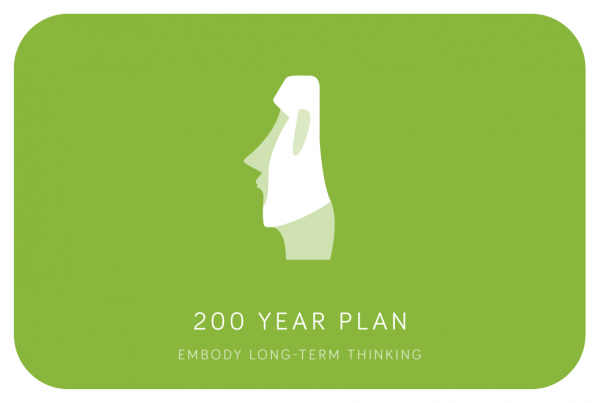Part one: Benedicto Norcia – a transcript
Following on from a presentation in the city of Matera at the tail end of the first unMonastery prototype last year, Alberto Cottica of EdgeRyders and the unMonastery received an invitation to visit Norcia from Nicola Alemanno, the mayor of the town. Situated in the province of Perugia in south east Umbria, Italy, with a long history evidenced by human settlements that date back to the neolithic period, the ancient town is known for hunting, especially of wild boar, and mountaineering and is enclosed by large walls that have marked the perimeter of the town since the 14th century. Norcia is most significant, however, for other reasons.
The town is the birthplace of the twin saints St. Scholastica and St. Benedict. The latter is a Christian saint born in 480 and responsible for penning The Rule of Saint Benedict; he is often credited as the founder of Western monasticism. Whilst Benedict himself left the town in his youth to found a series of monasteries in Subiaco and later Monte Cassino, Norcia’s is a place of deep importance and has served as a site of pilgrimage for many centuries for monks throughout the world.
Our visit, however, was intended less as a sightseeing expedition and more specifically as a unique opportunity to meet with Father Cassian Folsom OSB, the superior and founding prior of the Monastery of St. Benedict.
In the early morning of our first day we gathered for mass, which is celebrated in Latin and chanted, with not a single spoken word. Shortly after mass we retired to Nicola’s office for a conversation that lasted just short of two hours. During this time, we spoke at length with Fr. Cassian about the nature of The Rule, its specifics, its effects and the broader implications of monastic life. We learnt an incredible amount. What was perhaps most interesting but also unexpected was the degree to which there actually existed some common ground between the experience of the unMonastery and the insights that Fr. Cassian was able to share with us concerning monastic life. What follows is an edited excerpt from that conversation.
Background photo credit: Steve Cadman
Fr. Cassian
If I can summarise: the first question has to do with work. The value of work… Well, let me just talk about some principles about monastic work. It’s true that for the monasteries there’s no specific work; they can do anything. St. Benedict doesn’t care if you’re working in the field or working in the office or doing something strenuous or something simple. The principle is that you need to work for your own good, not for producing something. At the same time, because for St. Benedict the monastery is a self-contained unit you have to work to support that unit. But the market—I think this is important – the market is not what people want to buy or something, the market is God. That is, the monk works for God which is gratuitous of course, you can’t put a price on that. And the liturgy is the centre of the monastic work..
Ben
I think not having God is a real problem.
Fr. Cassian
In fact, it is. I think it’s fundamental.
The question is: what is this for?
Ben
Yes.
Alberto
‘Each other’ is a possibility… it’s a possible answer.
Fr. Cassian
Well, that could be an answer. But, we disappoint each other quite a lot; it’s kind of fragile. If that’s the motivation then I don’t think it’ll last for a long time. It’s good, it’s a good motivation, but it’s not sufficient I would say, and it’s not dependable.
Ben
Do you think it’s possible through the construction of social code to be able to create a surrogate for the metaphysical?
Fr. Cassian
I don’t. No, I don’t think it’s possible. I think it will break down.
(…)
It might be interesting to you – how monasteries in the monastic world relate to one another, which is not in the Rule itself by the way; it developed over time. There’s a kind of tension between autonomy and communion. Most of our life is about paradoxes, and about tensions and about resolving the tensions in some creative way. So, each monastery jealously guards its autonomy, but we very much want to be connected with other monasteries. And so over the centuries various structures have developed, and in the Benedictine monastic world today there are about 22 monastic groupings, called congregations, each one headed by an Abbot President. So, in this way the monasteries are all linked to one another in the network, a very elaborate network, which tries to maintain those two things: local autonomy and connection with all the rest.
Alberto
What sort of activities do you share?
Fr. Cassian
What you share is… information, problem-solving… mutual support. Over the centuries we developed a system of visitations – it’s a kind of a quality control system. So, there are other abbots from other monasteries who can check out your monastery, and the congregation – that is this monastic family – organises those kinds of things.
Alberto
Let me go back to the example that you made earlier on. So, you now produce beer in your monastery. Is there somewhere where this is documented? So, “We in the monastery of Norcia have a problem of producing beer. This is how we did it, and this is what you need to watch out for if you do want to produce beer of that kind.” We personally all do this in Wikis and stuff like that.
Fr. Cassian
No, we haven’t done that… There is a source in the monastery, we keep a chronicle. So every day there’s a little indication of what happened that day. There may be entries in the chronicle about the beer producing, but that wouldn’t give you much information. To answer a question like yours I would send you to another monastery with more experience.
Alberto
Would there be anything wrong if you started like a shared… documentation on breweries in which the Belgian monks would write a chapter…
Fr. Cassian
No, there’s nothing wrong with that at all, except that takes time. We are so pressed with the immediate needs that we don’t have the luxury to write a document about it. We’re just working from experience; we don’t have time to write a document about it. [laughs]
Alberto
Well, that’s luxury for you. [laughter]
Fr. Cassian
There’s a human contact there in handing things on.
Alberto
So you input the knowledge not in documents but in people?
Fr. Cassian
In networks, yes. And some documentation too…
Alberto
But there is a motive for the drive to documentation that emerged in the hacker movement which sees it as more efficient in terms of time. So, the same problem only gets solved once, and then it’s written down somewhere and that document is accessible online. That saves you more time than actually going to Belgium and finding Brother William who…
Fr. Cassian
But that’s more fun.
Maria
I have a question about the Rule: what do you think the Rule makes possible?
Fr. Cassian
The Rule makes it possible for a community of men to live together for a long time in relative peace. That’s not—I mean, that’s a lot, and without a Rule that would not be possible.
Alberto
When you say the Rule works… what do you mean by that?
Fr. Cassian
You can observe harmony and order, unity of life, things not being compartmentalised but united. And that’s not a small thing either. Most of our lives in general are terribly fragmented. You know, we do this and then we do this and then we do this, and it’s hard to see the unity of it. But in the monastery that’s pretty obvious, the unity of it. Now, you pay a price for that. The price is that you can’t do whatever you want, you know. There’s—what the community does and then you conform yourself to that. So individualism is a bad word in the monastery. That doesn’t mean neglect of individual talents and capacities and gifts and so on, but at the service of the community.
To elaborate on the relationship of the monastery and to the rest of the world. Our monastery… in business language they call this stakeholders: who are the people who are interested in your activity? Well, we have to have relations with the town, with the diocese, with the Roman Curia, with the Benedictine Headquarters in Rome, with our benefactors. We have benefactors all over the world, and so development is part of the activity at the monastery too, cultivating the benefactors. And that’s all in addition to running the monastery, the internal life of the monastery. So, it’s very hard to maintain a balance there. The superior, his primary task is to set the tone, but to relate with the outside. Then the second person in charge actually runs the day-to-day operations.
Ben
Within the unMonastery my role was to be the unAbbot. And just from my personal experience I just wondered: when you were talking about juggling and stakeholders – we also use the term stakeholders. I found that in my personal experience that I wasn’t able to really represent my own view. I had to always be a representative of different stakeholders in any discussion: an avatar of sorts. Is that the typical role of the Abbot, occupying a more orbital view? And in order to ensure that the situation remains stable, you have to ensure you are always conscious of disagreements between individuals in the group, external stakeholders and the wider community that you’re working with in order to achieve certain objectives. So much so that when you try to resolve conflict or you try to instigate a new decision that the group’s going to make rather than choosing to say: “I, as an individual, think this thing,” you are like: “How do I represent all of these views and then impress upon the group that they should take that direction?” Is that the kind of skill that qualifies somebody to take the role of Abbot?
Fr. Cassian
Those are very perceptive observations. Let me address that in two ways, from outside and inside. Within the monastery even though the Rule sets up this hierarchy and the Abbot has lots of authority he also, in Chapter Three, talks about holding council, and those structures have developed over the centuries. In our monastery we have a council, there are four people on the council.
There’s a chapter, the chapter is: “Those monks in solemn vows who have made their life commitment.” They have a say in what happens. The young monks in formation don’t have much of a say. They have some say, but… The monastery is divided into three deaneries that are discussion groups, so if any question comes up and you want the input of the whole community then we have a structure to do that. Then that feeds into the council, the council discusses it and makes a recommendation to me, and then I make a decision about something. So there’s quite an elaborate system of consultation, and frequently enough: in the council I might have a strong opinion about something, but that’s not the place for me to express my opinion – I’m supposed to be listening. So, I listen to what they say, and occasionally insert my point of view, but I really have to listen to other people’s point of view.
Now, in terms of creating some sort of unity, oftentimes there are different points of view and people don’t agree with one another. We just had a council meeting yesterday, and of the four people two felt strongly this way and two felt strongly that way. Well, it’s hard to make a decision that way. In any case, that’s part of the Abbot’s role, to create unity out of this plurality, but then when you represent the monastery to the outside you have to speak with one voice – you can’t have different voices, right? So, the Abbot communicates the charism and the spirit of the monastery to the outside in these various contexts that I’ve described. In terms of who’s qualified to do that, the trouble is: how do you learn to do those things? You can’t learn from a book. The best way to learn is if you’re one of the minor superiors and then with experience you learn all the different complexities, and then if the community elects you as Abbot you would have a certain experience behind you. There are some skills you can learn, but much of it just comes from experience. In fact, in these various congregations I was mentioning to you, there’s a meeting once a year of the Abbots. So, they get together and they talk about their problem cases and, you know, all that sort of thing. They share their experience and ask for input and advice. Or in my case: we’ve had several difficult situations that I didn’t know how to resolve myself. So I consulted with certain Abbots – whom I’ve known for a long time – with much experience, even going to the United States to speak with them about certain things because it was worth the trip. So that’s why this network is very helpful because we can’t solve everything by ourselves.
Ben
And in respect to this, holding the position of Abbot, how do you deal with isolation?
Fr. Cassian
Well, that can be a problem too, certainly. Fortunately we have a lot of collaboration in the monastery, but there are times, there are plenty of times when I feel that I just have to… I have to accept that I’m alone. But, that’s why this contact with other Abbots and other monasteries is helpful because you’re not completely alone.
Ben
To close this conversation, can I ask a question outside of the Rule? You talk about the ideal monastery not being open to the world but being inherently countercultural in this moment, and I wondered: what do the monasteries and the orders in this moment think about the state of the world in respect specifically to global warming?
Fr. Cassian
I think the – this is my personal opinion – that the whole ecological movement, while having many valid concerns, has become a new religion, and I think it’s a bit excessive. But there’s not a monastic response to that, except that monks try to take care… Here’s the monastic approach: for the monks there’s a—because we make a vow of stability, that is we’re not usually sent to other places but we stay in one community… there’s a love of the place. And because we love the place we want to take care of the place. And so there’s a long tradition of beautifying the place or taking care of the land or taking care of the buildings – you could say taking care of the environment – because we love the place. But there isn’t a monastic point of view about environmental issues per se.



